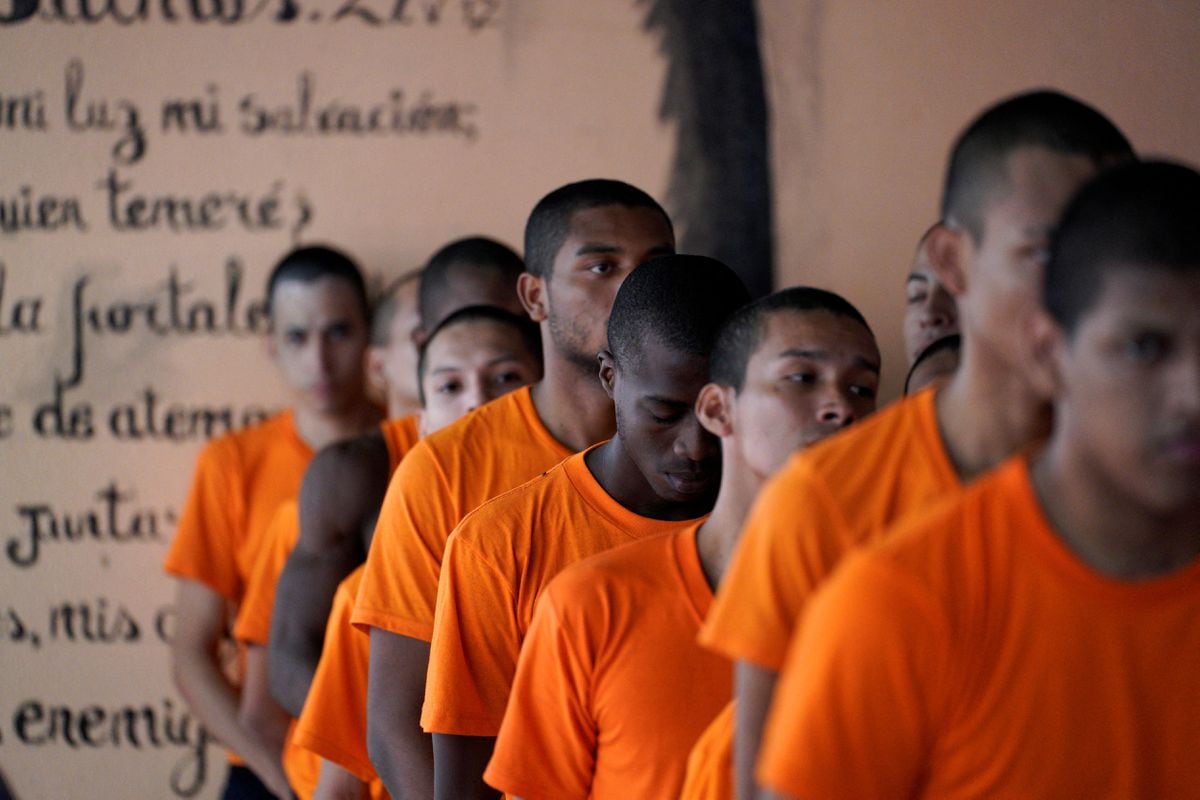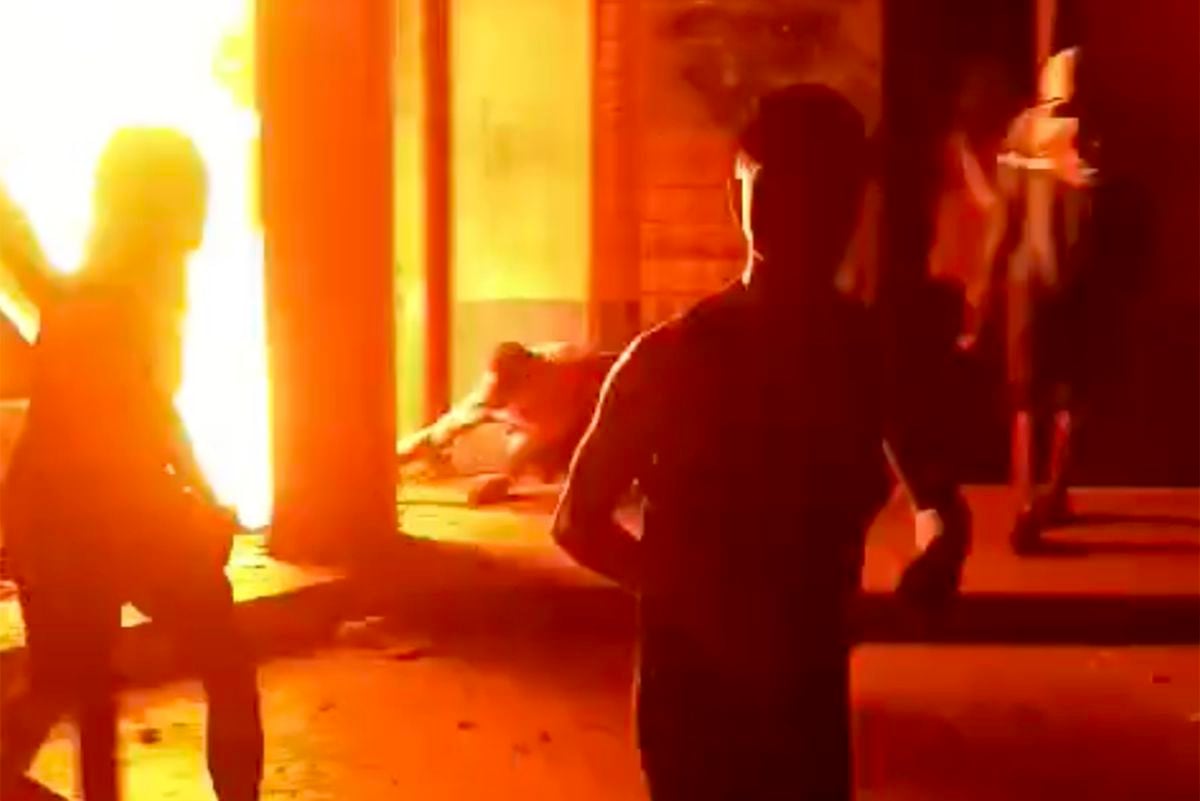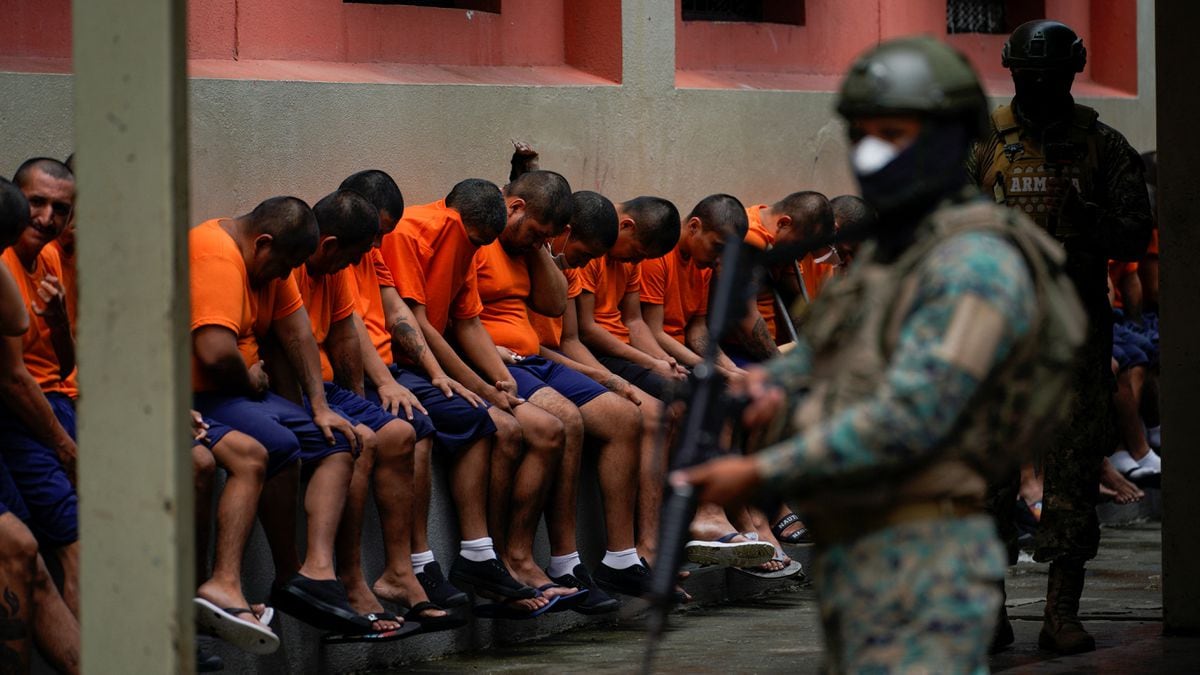Rodolfo and
Pipo
have become fond of each other in the Cantabrian prison of El Dueso, in Santoña (Cantabria).
They have shared many hours and intimated intramural.
Rodolfo is a 61-year-old prisoner who has cared for
Pipo
for four months , a greyhound who was mistreated and abandoned by his owners until he was admitted to the prison a year ago.
This past Thursday they said goodbye: “
Pipo
Give me a hug”, Rodolfo says in his ear, excited and with glassy eyes.
The dog brings its pointed nose closer to him and responds by wagging its tail vigorously.
Faced with this endearing scene, José Antonio Álvarez, El Dueso's social work coordinator, comments the following: "In a prison, beautiful and positive things also happen."
Inmates of this penitentiary center have been participating since 2007 in a therapy program with animals, aimed at improving mental health in the prison that is achieving, says this social worker, "improving their behavior, stimulating self-esteem, managing well the feeling of guilt and work on empathy”.
Pipo
has been adopted by Nagore Lluvia and will live in O Rosal, a small town in Pontevedra on the border with Portugal.
Rodolfo then welcomes
Alma
, a greyhound who at that moment joins the El Dueso canine family, and returns to her cell in the mixed module as every day.
Pipo
is the tenth dog that has been rehabilitated from this jail.
His departure saddens the inmates who have lived with him in recent months.
Ignacio, Ángel, Juan Carlos and Camilo approach the downtown bridge (next to the building they know as
La Moncloa
) to say goodbye and meet
Alma
, the new companion of
Tatoo
, another greyhound, and
Kora
, a farmer.
They are from the team of five caretakers, who are usually joined during the walks by another 12 or 13 inmates "with special emotional needs" who participate in the Animal Assisted Therapy (TACA) program.
While other inmates attend school or specific treatment programs, they are assigned the responsibility of taking care of feeding, hygiene, exercise, and walking the three dogs for about five hours a day.
More information
Conservative prosecutors encourage Feijóo to dismantle laws of the Government of Sánchez
This activity, Álvarez points out, "generates very positive effects and changes in the lives of the inmates."
“Faced with the model of volunteers who go to prisons to help inmates, in this case it is the inmates who help third parties.
They feel useful because they fulfill a positive social function”, adds the social worker.
They take care of the dogs selflessly, without expecting anything in return.
There is no type of economic compensation, nor is there any prison benefit.
Nagore Lluvia hugs 'Pipo', the greyhound she has decided to adopt after spending a year in the El Dueso prison (Santoña, Cantabria).Javier Hernandez Juantegui
Ignacio, a 49-year-old from Cantabria, had a bad life before being confined: “Being with the dogs helps me forget about my problems, they are better than many people.
It has helped me to improve as a person, I no longer take drugs”.
Rodolfo is also delighted to go down every day to the fence where the animals are waiting for him because "I have never received the greetings that they give me every morning before from people."
And he comments that the experience helps him "live calmer and be more affectionate."
"The system feeds itself, because we take care of the dogs and they also give us a lot," he adds.
In December 2022, the TACA program was being carried out in 17 prisons and 282 people deprived of liberty participated, according to the most up-to-date data from Penitentiary Institutions.
What makes the Santoña penitentiary center special is "the good climate between officials and inmates, on the one hand, and its magnificent enclave, on the other."
El Dueso occupies an area of 33 hectares, offering views of Mount Buciero, the Santoña marshes and Berria beach.
The prison will be 116 years old this May and they say it is the most beautiful in Spain.
It is like a small town, with streets, a square and even a road.
To walk the dogs, there is a three-kilometre circuit that runs around the perimeter and another shorter route around some "solidarity" orchards where the inmates grow tomatoes, peppers,
zucchini, cucumber, aubergines, onions and also carico-montañés (a native variety of pinto beans).
Last year, 1,400 kilos were harvested and delivered to the Cocina Económica Santander soup kitchen.
“Dog care is a tool that gives good results,” says the social coordinator, “because the inmates develop emotions, receive affection and establish self-support ties.
When dealing with animals that arrive very touched and are usually reluctant to human presence, they see the effects of violence, they become more permeable, they feel valued and develop solidarity behaviours”.
Camilo is 28 years old, the last five deprived of liberty.
In seven months he will serve his sentence.
He has been following therapy with dogs for almost a year: “I come very loaded from the yard;
Animals help me relax.
The work with the dogs is very nice, I do some races with them.
Get out of here,” he says, pointing to the dog enclosure, “I'm depressed and this helps stabilize me mentally.
I try to make dogs feel comfortable.
They notice when we are upset or nervous.
They are purer with feelings."
His case is one of the examples that Álvarez gives of the benefits obtained by inmates who carry out "positive prosocial" tasks in prison: "It gives meaning to their stay here, it helps them manage their guilt, they convince themselves that they are doing something good, increases creativity... It is an activity that inhibits violence and provides defenses against addictions.
Doing something for which they are recognized, as is the case, makes them feel good about themselves and increases the hormones of well-being.
It is an experience that provides the inmates with different sensations from those they have lived outside and inside the prison.
And it is also contagious, because many ask to participate in this activity”.
For Rodolfo there is no better place in El Dueso than the enclosure where he lives with the dogs: “Being in the meadow, walking through the grass with the dogs is very different from the life we have in the module.
It is more enriching, it gives me emotional stability.
I am calmer, nothing to do with the anxiety that the patio generates.
The head goes otherwise.
We take care of them with a thousand loves, but they also give a lot to us.
It is the perfect symbiosis.
I notice that my colleagues improve, it's gratifying”.
Manuel Martí, professor of Psychology at the University of Valencia, believes that “all the professionals who work on prosociality in prisons are Quixotes, they have a lot of merit.
With the interventions they carry out and the workshops they organize, they achieve something that transforms the inmates and that they grow as people”.
The NGO Galgos de CaSa considers El Dueso as "a foster home" for abandoned dogs, says the president of the animal protector, Eva Ceballos: "It is a satisfaction that an animal that arrives here with no present or future, because it has suffered mistreatment and he has very serious physical and emotional injuries, he manages to be rehabilitated in prison and passes into the hands of an adoptive family ”.
This program is known as "two lives and one day", which started in 2017.
Rápid
was the first on the list.
That greyhound was precisely adopted by Nagore, in August 2018. Five years later, this Galician woman returns to the Cantabrian prison to take
Pipo away
, the tenth to be released after a year among the prison population: "It is a very interesting initiative, because affective bonds are created that help the reintegration of prisoners and animals," he says.
Two inmates from El Dueso (Santoña, Cantabria) hold 'Alma' (in the foreground) and 'Tatoo', two greyhounds they take care of.Javier Hernandez Juantegui
Rodolfo talks with Nagore and details what
Pipo
is like : “Here he arrived scrawny and was very distrustful.
He is now a stuffed animal, he has changed a lot.
He is affectionate, he likes contact, he does not argue, he does not fight.
He retains his hunting instinct, he has a graceful and very elegant run, he is in top form.
He responds to the call, he likes to eat the leaves of the fig tree and does not allow them to disturb him when he is eating ”.
Ceballos comments that "seeing the happy faces of the inmates and of the family that takes the dog is the best demonstration that this experience is a success in itself."
All the protagonists of this story —the social worker, the inmates, Nagore and those responsible for Galgos de CaSa— go up to the respite module, where there is a room set up as a radio studio.
Benito speaks with an Andalusian accent: “Good morning from inside El Dueso.
Welcome to Radio Encadena2, we start the program
Open the wall
.
Today we are going to talk about our experience with dogs…”, the recording of the
podcast begins,
which will be broadcast on Radio Santoña.
At the end of the radio episode, Rodolfo says goodbye and goes to his room: “I am very sorry that
Pipo
is leaving .
He is leaving a friend, although I already know that he is going to be very well taken care of [by Nagore].
He is literally going to pass away.”
Subscribe to continue reading
Read without limits
Keep reading
I'm already a subscriber









